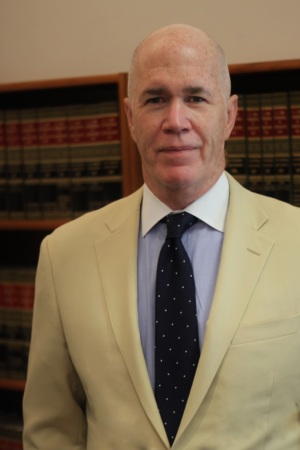 Robert “Bob” Rapoza is a force in the community development world. He’s been instrumental in so many programs, including the CDFI Fund, New Markets Tax Credits, and financing for affordable financing—and for keeping those programs strong for 30+ years. At the 2025 PCDC Gala on June 2, PCDC will honor Bob with the first-ever PCDC Impact Award in recognition of his dedication to community development.
Robert “Bob” Rapoza is a force in the community development world. He’s been instrumental in so many programs, including the CDFI Fund, New Markets Tax Credits, and financing for affordable financing—and for keeping those programs strong for 30+ years. At the 2025 PCDC Gala on June 2, PCDC will honor Bob with the first-ever PCDC Impact Award in recognition of his dedication to community development.
PCDC’s CEO Louise Cohen sat down with Bob to talk about his career and what he sees as the future of CDFIs, NMTC, and community development in general. The following interview has been edited for length and clarity.
LC: How did you get involved in community development?
BR: I started out in rural housing. In the early 1980s, I got tapped to work on various community development corporations (CDCs) on projects like water and sewer infrastructure. Fast forwarding to the Clinton administration, I was part of the group that helped establish the Community Development Financial Institution (CDFI) fund in 1994.
Not long after that, Michael Barr, Deputy Assistant Secretary at the Treasury Department, asked me to come help develop a tax credit for community development. I worked with the others to figure out how the credits would actually work. I spent the next few years getting sponsors in the House and Senate. We eventually set it up as part of the Community Renewal Tax Relief Act of 2000.
LC: You were deeply involved in creating two community development programs. Is this how you found the niche for Rapoza Associates?
BR: Yes, exactly. We have a unique position. In addition to working with CDFIs and NMTC projects, we work extensively with organizations that borrow from the Small Business Administration and the USDA.
LC: What do you think have been the keys to your success in gaining recognition and funding for community development?
BR: In my mind, there are two ways to get things done in Washington: the first is by knowing the right people. And we definitely do.
But the other way—and the way that we have had the most impact—is by knowing how the projects work and being subject matter experts. In that way, our deep expertise in community development makes us somewhat different from a lot of firms, and certainly very different from what most people think about how lobbyists work.
LC: Why do you think we’re in a position where community development is still relevant?
BR: Simply put, there’s still poverty. Urban and rural communities alike have lost employers, which creates financial strain. And it’s not like there’s a surplus of health care and child care facilities, both of which are needed for thriving communities.
I’ve never seen the pressure on affordable housing like there is now. People are seriously struggling to find housing that fits in their budgets. The crisis is shining a light on this problem that we’ve had in the U.S. for a very long time and that’s gotten a little worse over the past 10-15 years.
LC: Can you talk a little about why lending and tax credits are so important? There are foundations out there that give grants for similar kinds of efforts, so why do we need community development?
BR: To tackle the kinds of issues we’re dealing with, we need to be able to reach everywhere and anywhere. And the foundations are great, but they don’t have the resources to reach every community that needs it.
Community development organizations have been very successful in transforming what was a narrow way of doing things—you got a grant from someone and you built something—to now, where you put together a capital stack. You get a grant, some foundation money, some tax credits, and maybe some bonds. And while that’s a little more complicated, it does create a bigger base of support for the community.
LC: What do you think PCDC contributes to the CDFI community? What makes our impact different?
BR: There’s no shortage of need for better health care in this country. The work that PCDC does in expanding healthcare access through better facilities is a symbol of what can happen when people have the resource, expertise, and desire to solve a problem. PCDC has supported a really impressive number of health care facilities, and the improvements those facilities have made are exactly what we need more of.
LC: At this moment, why do you think the CDFI Fund is so important?
BR: Leveraging significant private investment, the CDFI Fund is one of the country’s best engines for stimulating job growth, new and expanded businesses, more affordable homes, and essential community facilities in rural and urban areas that have often been overlooked by private investors and lenders.
LC: Looking ahead to the future, what advice do you have for CDFIs? What’s your advice on the long arc of community development?
BR: The thing to do is focus on tangible results. Be able to say to your representative or senator, in your district or state, we’ve created this many jobs and served this many people because of CDFIs and NMTCs.
People need help. Communities need help. Get good at telling the story about how you can give that help, and make sure your elected officials know about the impact you’re having.
PCDC is proud to honor Bob Rapoza at the 2025 PCDC Gala. Sponsor or attend the Gala—and if you can’t attend, show your commitment to the future of community development and primary care by donating today.